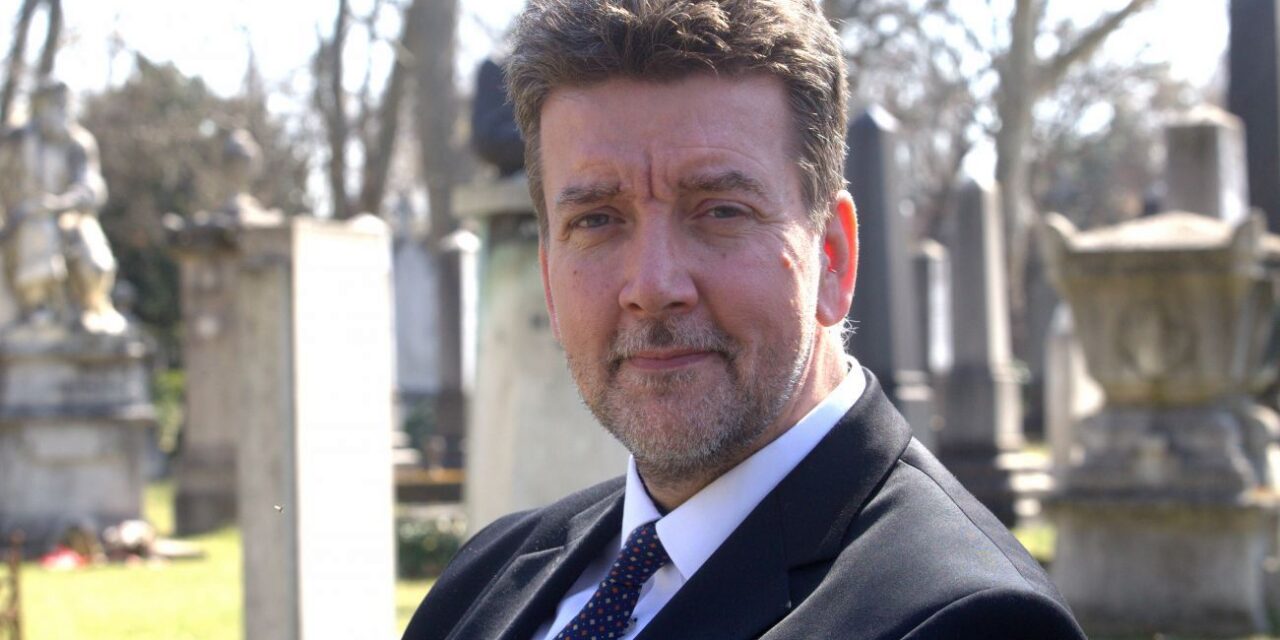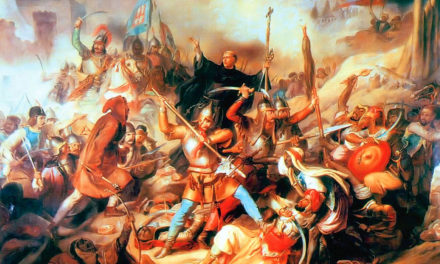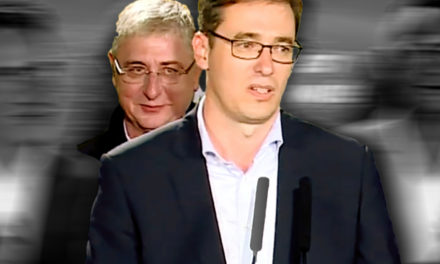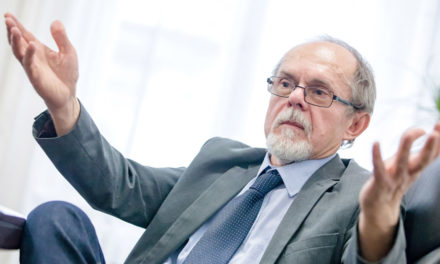If we only know the name, we can easily be mistaken. Many people are also wrong. If we only see their website, we can be wrong again, only in a different way. And if we know the name and TV appearances of the head of the board, we can also make assumptions about their work. Gábor Móczár is a regular participant in Hír tv's Vezércikk program, in which he gives his opinion on daily events and important happenings, so it would be easy to believe that he is a politician, or at least an analyst, even though he manifests himself there only as a civilian, a citizen. In terms of his profession and work, his task is quite different: he is the director general of the National Heritage Institute.
– It would be good to know what the institute's job is, because the name suggests something different than what the less informed inquirer might believe. If only because they are based in the Fiumei út cemetery...
- We are often confused with the former Office of Heritage Protection, or with the specialized heritage protection authorities, who are responsible for built heritage and monuments.
Our job is to preserve, save and pass on our historical and spiritual heritage to the present and future generations.
This does not simply mean the care of historical graves, but the coordination of the network of historical and national memorial sites, the organization of their operations into a professional unit, the operation and presentation of our historical cemeteries, the development of pedagogical and methodological programs based on them and their introduction into a national system, in cooperation with the network of public education institutions, as well as the the launch of new projects that support the survival of Hungarian communities across the border and strengthen their identity, such as the Transboundary Memorial Namespace, which has been added to the Hungarian National Namespace.
- The National Heritage Institute was established in 1999 - quite "accidentally" during the time of the first Orbán government - under the leadership of Anna Jókai, from the secretariat of the National Pardon Committee, and later the National Memorial and Pardon Committee, as an independent institution from 2013. After 2002, Anna Jókai endured a whirlwind battle with the left-wing governments of the time for 4 years, finally stepping down as head of the Committee, and former Prime Minister Péter Boross took over the leadership of the Committee, who continued to lead the public body until the spring of 2021. Since then, parliamentarian Péter Harrach has been the president of the NEKB, which consists of 10 recognized personalities who are all connected to memory politics in their respective fields. They make decisions of which we are the preparers and executors.
- Of the three words, National Heritage Institute, the neoliberal side cannot stand two: national and heritage. Anna Jókai's windmill fight has already been discussed, and from this I conclude that the Institute may be attacked. Today too?
"Nowadays, fortunately, there are few attacks on us, and."
sometimes it crosses my mind that we are not necessarily doing our job well if we are not attacked…
But joking aside: what we do every day is not against anyone's interests, we proactively look for collaborations and do not step on anyone's side. Recently, for example, we announced a new program at a press conference with Deputy Prime Minister Zsolt Semjén, which we believe is a win-win for everyone. This is the national-level pedagogical program of national memory, within the framework of which, with the help of the government, 80,000 children will be able to visit national and historical memorial sites in this first year, so that the visits are carefully prepared by the teachers at school, based on methodological material developed by us, adapted to a location, then, by completing creative group tasks on site, the children can gain lasting experiences that affect their emotions. With this, teachers, children and families win, education and tourism win with it. Ultimately
the program strengthens our national identity, the younger generations receive support that will fundamentally determine their future attitude to Hungarian history.
I trust that most of you will feel that this is a support, a help to try to get a feel for these difficult decades, or from the 20th century onwards, these difficult centuries, and to find out what makes Hungarianness possible.
– I also asked about attacks because, while leading this institution, he is a regular participant in Hír tv's Vezércikk program, where he also forms a political opinion.
– When I was invited to the show, I agreed to participate by representing only my private opinion. Although I participated in local politics as a municipal representative for 19 years, but
I am neither an analyst, nor a journalist, nor a critic, nor a political scientist, just a civilian with two feet on the ground.
As I used to say, people with two hemispheres of the brain, because I was involved in cultural organization, I have been singing since I was a small child, while I was originally a mechanical engineer and also worked in the field of heritage protection. In other words, I observe the world from several perspectives, and according to my intention, I can give a measured, balanced opinion that is not overheated by emotions.
- Then now I ask you to give a moderate opinion about what many people do not understand. We receive a barrage of slaps almost daily now. We have been fined a monstrous amount for doing our duty and protecting the Schengen border. They raise objections to the rule of law against us, but in such a way that the leadership of the Union violates the rules they created without batting an eye. They want to force the LGBTQ mentality on us, they want to rush us into a war that is not ours. They are destroying European and, of course, Hungarian agriculture for the benefit of the Ukrainians. They don't say a word when the Zelenskiys block the oil pipeline. I could enumerate for days - in Hamlet's words - "all the kicks with which the unworthy abuse the enduring merit". We don't understand why we don't fight back. Say, why don't we stop the supply of electricity to Ukraine in response? Why don't we stop our EU payments? Why don't we say that as the god of giving is, so is the god of bet?
- Of course, these emotions are understandable, but I still think that the basic position of the Hungarian government is the right one. The government has a more or less straight-line strategy, and therefore we are not willing to take up the gauntlet thrown at us. So the fact that the European Union behaves in a way that violates the law against everything that it otherwise determined itself does not mean that we should behave in the same way. We must not stoop to their level. We are Euro-critical and not Euro-sceptic. We want to repair and reform the European Union, not break it up. As long as there is a chance that the Union can be saved, we must do everything we can to do so.
If we were to react with vehement but senseless opposition, it would be a sure way to disintegrate the Union, and for us it would be tantamount to economic suicide.
That's why we don't cut off the electricity to the Ukrainians and that's why we fulfill our payment obligations (and don't compensate with undeserved withholdings), because if we didn't, it could immediately serve as an excuse to start our exclusion. Let's trust our government and our prime minister, they know what they are doing. There are promising signs of change at the European level as well, we just have to wait until they become stronger. We have to be persistent, because in my opinion, unfortunately, this will not be a quick process...
Author: György Tóth Jr
Photo: National Heritage Institute













